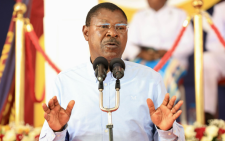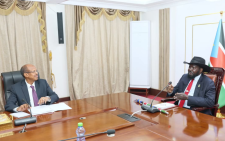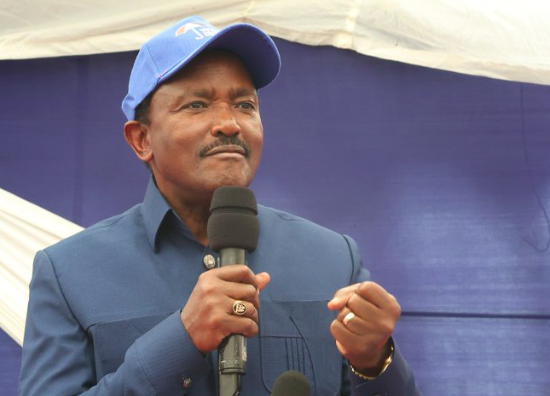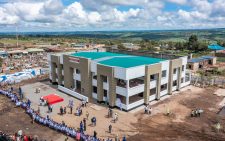Russia-Ukraine crisis continues to wreak havoc in EAC real estate sector
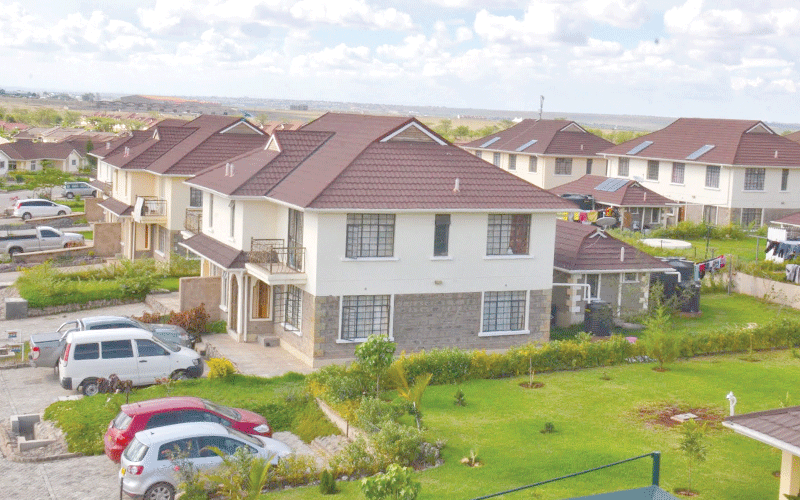
An air of uncertainty looms large among property developers and real estate investors in the East African region in their construction projects as the crisis between Russia and Ukraine shows no sign of coming to an end.
For Kenya, Uganda, Tanzania, Rwanda, South Sudan and the latest entry of Burundi, economic sanctions against Russia which is an important exporter of building materials are making matters worse.
Property developer and chief executive officer of Kampala based Credo Management Limited in Uganda, Wilberforce Nsamba who was in Nairobi to attend the ninth annual East African Property Investment Summit recently said:
“The rising energy costs and a shortage of building materials pose a big challenge to a market that is yet to get out of the woods as Covid-19 measures are eased.”
Pass cost to clients
Back home in Uganda, he told Boma at the sidelines of the summit that the price of building materials has since skyrocketed by 40 per cent, pushing the cost of construction by 15 per cent.
Fuel that is important for running machinery at construction sites has also gone up. Nsamba says he has not much choice as a developer, but to pass over the cost to the client or postpone project completion.
Stakeholders in the real estate market fear cost escalation due to an expected import shortage that would lead to a sharp price rise for major commodities globally due to supply restrictions emanating from the situation in Ukraine.
The annual inflation rate in Kenya accelerated to a seven-month high of 6.47 per cent in April, from 5.56 per cent the previous month. Ken Gichinga, the chief economist at Mentoria Economics said:
“Kenya is a net importer of fuel and, therefore, any increase in global crude oil prices is felt very keenly. But a worse effect is that high fuel prices also lead to an increase in product prices.”
Kenya depends heavily on Russia and Ukraine for oil and gas, and metals, which are critical for the construction sector, among other commodities. Jeremy Awori, chairman of ABSA Bank told the summit that financing real estate projects for developers is critical if the region is to recover. But the inability to repay mortgages, because of developers’ failure to remit dues, has posed a threat of limited financial support flowing for investment purposes.
Chief economist at Absa Group, Jeff Gable on the other hand said the crisis poses a serious challenge to Kenya and the rest of the region as the domestic interest rate and inflation will go up. “If the domestic interest rate goes up, it means fewer customers accessing financial help to invest in real estate,” said Gable. Kenya, Uganda and Tanzania are among the top 50 countries in the world that are highly indebted to China, according to US-based research firm Brookings Institution.
This has seen the International Monetary Fund (IMF) raise a red flag over the rate at which East African countries are accumulating debt. The region’s economies have fallen into a financial fix as they attempt to fund persistent budget deficits and implement mega infrastructure projects against a backdrop of declining revenue collection.
As a result, the economies have resorted to massive borrowing, both from the domestic and international markets to quench their loan appetite, with fears that the increasing uptake of commercial loans could push most of them into debt distress, says NMF The IMF, in its regional economic outlook report for Sub-Saharan Africa, released last week, says that surging public debt-to-GDP ratios for Burundi, Kenya, Rwanda, Tanzania and Uganda has left them highly exposed to greater rollover and exchange rate risks.
“With several countries facing increased foreign exchange and refinancing risks, it is critical to enhance debt management frameworks and transparency,” says IMF. The country’s total public debt is at Sh8.2 trillion or 70 per cent of Gross Domestic Product (GDP).
A weak shilling is likely to increase Kenya’s debt obligation by more than Sh500 billion by December if the current depreciation trend prevails, says financial consulting firm, PKF which projected the shilling to trade as high as 120 units against the US dollar by end of the year. It is currently trading at Sh115.10.
The devaluation of the country’s currency has already pushed up its obligation on external debt by Sh271 billion since June last year, despite dropping to USD$36.9 billion (Sh4.31 trillion) from USD$37.06 billion (Sh4.31 trillion). According to the head of credit at Kenya Mortgage Refinance Company, Geofrey Mwaura, higher cost of steel for construction can drive out developers and investors.
Cost of steel
Prices of reinforcement steel bars are critical to the cost of a construction project. The bars are used with concrete in civil engineering structures to create structures that are concrete reinforced, such as beams columns and slabs.
Getting the best prices for this important construction material will have an overall impact on the cost of a construction project.
“Clients will be reluctant to pay in relation to agreements reached before the crisis broke out as the cost of steel, construction materials and byproducts rise,” said Mwaura.
Tanzanian Omar Kombo is of the opinion some developers are likely to face problems with their projects, in particular, if they have already locked in on forwarding commitments, but have not fixed their costs.
Amr Soliman, the founder and CEO of Mountain View, one of Egypt’s largest property developers, which is currently building three new cities in the country is quoted as saying the increasing price of steel has made construction a bigger risk factor.
“Now it’s a big risk because of the supply chain. Steel prices have become very high because 30 to 40 per cent of steel comes from Ukraine and Russia.” Before the crisis, already the prices of steel had gone up, says Shadrack Mella, lead valuer, East Arica Valuation Advisory at JLL as the cost of some items increased by Sh2,000. Before the crisis, the three-inch by three-inch by 14-inch gauge (3x3x14) steel tube was retailing at Sh3,500, but in four months since August, the cost has risen to Sh5,500.

